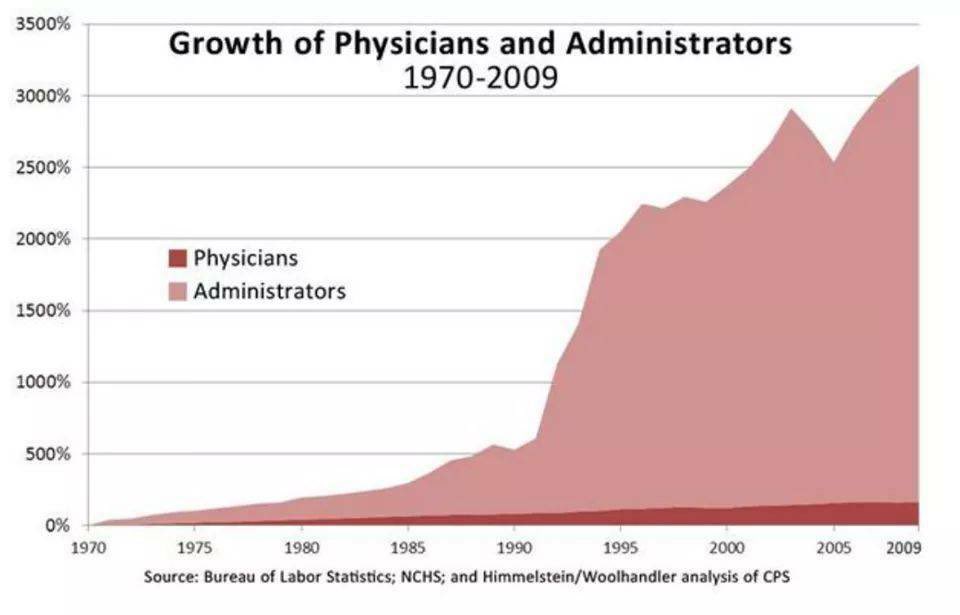“Radical” is a slur word in most of our discourse. “A radical” is someone who thinks society needs truly fundamental changes. If you are a democrat in a monarchy or a one-party state, you’re a radical. If you believe in equal rights in a state with rights based on rank, you’re a radical. If you believe in fascism in a democratic state, you are also a radical, and if you want to go back to women not having the vote and blacks only being able to vote in theory, you’re a radical, though we tend to call that style of radical a reactionary or sometimes a Republican.
Another kind of radical, perhaps the most common in our society, though still rare, is the type that believes that capitalism has to go away; that fundamental economic relationships shouldn’t be determined through markets controlled by capitalists. (You can be for markets, and against capitalism, weirdly, though it’s rare.)
It’s clear our societies have failed. We pretend they haven’t because the final collapse hasn’t happened, but that’s like saying that the Titanic hadn’t sunk after it hit the iceberg. Technically true, but believing it will get you hurt, bad. Might be good if other people believe it, though, while you sprint for the lifeboats.
The argument for this is tedious, and I’ve made it many times so I won’t bother here.
In the face of a failed society, trust in leaders is insane. Crazed. They’ve obviously run society off a cliff, and they either are okay with that or are incompetent, or both. (And the smart ones are selling you the line that everything is okay while they sprint for the lifeboats: a.k.a., New Zealand.)
For over ten years now I’ve been telling Americans to get out. Oh, it’s not that the US is the only developed nation heading for failed state status — for all intents and purposes there are no exceptions, not even Sainted New Zealand, but the US is one of the leaders in the failed-state race (Britain’s another), and I have a lot of American readers. If you’re going to have everything go sideways into a propeller, better later than sooner.
But most Americans won’t or can’t get out, and Musk and Bezo’s dreams of escape to space aren’t going to happen for humanity en-masse, not in time.
We’re all in a big ship, and it’s going down. Some areas are already underwater, others will be soon, and the entire thing is going to sink.
And we have no lifeboats. We could, perhaps, have built some, if we’d started 30 to 40 years ago with massive investments, but we didn’t, and if our leaders were that able, they’d have been able to save the ship, since that’s when they had to act.
But this article isn’t about how “we are fucked,” it’s about how “too many of us refuse to admit it and that it means we need radical change.”
And one of the big reasons for this is the need for “Daddy.” One of the big hurdles preventing radicalization is that becoming radicalized means you realize you can’t trust your leaders at all. That they have fucked up, betrayed you, or both. That they are bad, evil people who not only aren’t acting in your best interest, but are your enemies.
I’ve been pounding this issue for a couple years, and some regular readers are probably sick of it. I am.
But it matters. If you don’t accept, psychologically and intellectually, who your enemies are, you can’t protect yourself from them. If you don’t accept, psychologically and intellectually, that your leaders are your enemies, you can’t properly take action on your own, with friends, family, and other groups — because at some level, you’re still thinking that government or corporations will come through and take care of things.
All your life, government and corporations have taken care of you. They’ve often been abusive parents, but they have made sure there’s food available to buy, streets to walk and drive on, laws, jobs, etc, etc. They run almost everything and you’re dependent on them for almost everything just like you were dependent on your parents and teachers when you were a child.
Bad parents still feed and house you. They’re monsters, but monsters who kept you alive. Children love their abusive parents even as they fear and hate them, and the same screwed up psychology pertains to business and government leaders, and those they lead.
An entire life’s conditioning works against radicalization in anyone for whom the system has even slightly worked.
But the fact of the matter is that if we want to handle climate change, environmental collapse, or any of our other problems (“handle” doesn’t mean “stop,” but many problems are essentially trivial, and could be fixed any time our leadership wants to, like health care or spam calls), that means we need radical change. We need to change our system completely, and we need to get rid of our entire current leadership class, all of whom have proved their incompetence and ill will.
That’s radical. That’s a leap.
And that’s hard.
But acknowledging that there will be no real help from above until radical change happens is necessary, for the world, and if we can’t change them before they defenestrate themselves after trying to shove us all out the window first, to protect and care for yourselves in the face of a malign government and corporate class.
Corporate and government daddies and mommies aren’t going to save you. They’re the ones hurting you. They’re the ones making your life hell and destroying your world.
Accept that at your core.
DONATE OR SUBSCRIBE

